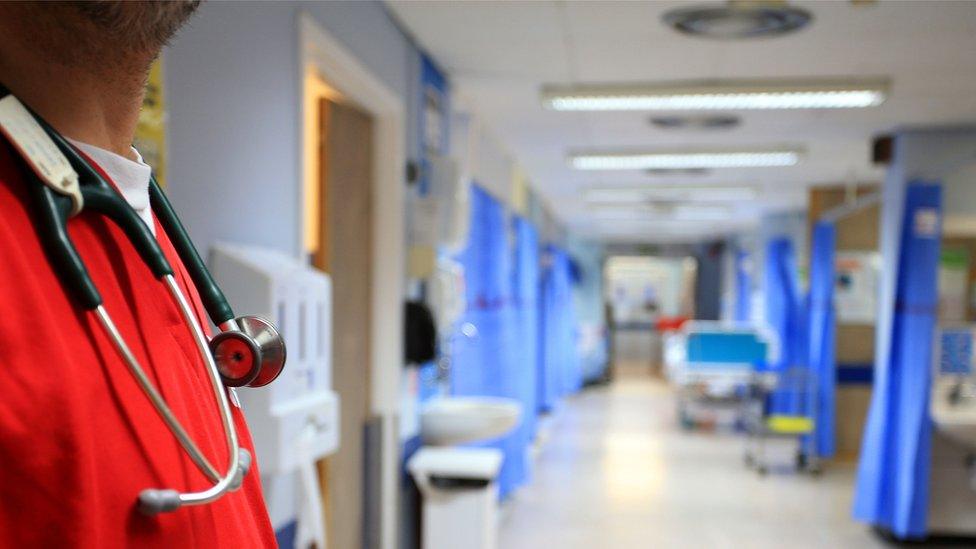EU vote bigger decision than devolution, says Carwyn Jones
- Published
Carwyn Jones says firms will not want to set up in a Wales outside the European market
The choice in the EU referendum is a "much more fundamental moment" than the 1997 vote to create the Welsh Assembly, First Minister Carwyn Jones has said.
A vote to leave the EU would say "we are closed for business", he argued, and risk Wales' "better tomorrow".
Speaking in Swansea, he also warned a leave vote would jeopardise efforts to save Welsh steel plants.
But Vote Leave Wales leader David Jones said Britain could only be "independent again" outside the EU.
In his first major speech setting out the case for EU membership during the referendum campaign, the first minister focused mainly on jobs and the economy.
He described claims that poorer parts of Wales would still benefit from hundred of millions of pounds of European aid after Brexit as a "dangerous fantasy".
"The money wouldn't come from Brussels any more - it would get lost in the post," he said, "last spotted somewhere around Whitehall".
"I've spent nearly seven years as first minister of Wales, almost all of them sadly with the Tory Government at the other end of the M4.
"Getting a single extra penny out of the Treasury in that time has been like trying to get blood out of a stone."
The EU, Mr Jones told an audience of Labour politicians and activists, was a "safety net for all of us", adding that "everyone who values agriculture, apprenticeships, and better jobs should get real about this".
"We lose that European lifeline, and Wales loses money," he said.
David Jones says the referendum is far more important than general or assembly elections
Speaking for the Leave campaign, Conservative MP and former Welsh Secretary Mr Jones agreed the EU referendum was much bigger than the one on Welsh devolution, calling the vote on 23 June the "biggest decision of our lifetime".
"It's far more important than any referendum we've had since 1975 [when the UK voted to remain part of the then Common Market], far more important than any general election or assembly election.
"This will determine whether or not Britain becomes an independent country again, or whether we become part of what will be an increasingly powerful EU which will be well on the road to becoming a superstate."
Analysis by Nick Servini, BBC Wales political editor
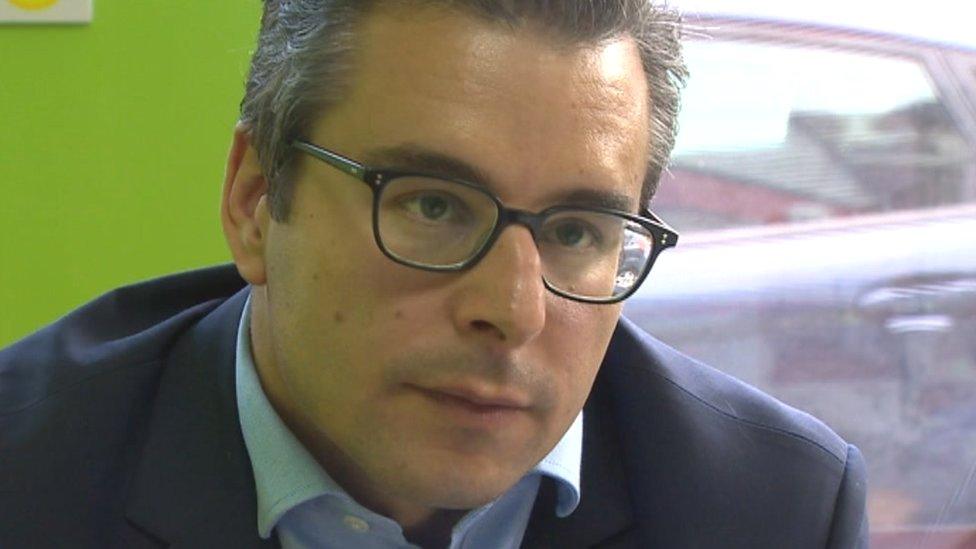
This speech by Carwyn Jones attempts to set out the most positive vision for the EU by any leading Welsh politician in the campaign so far.
Delivered at Swansea University's gleaming bay campus, the poster boy for so many EU launches, he claimed that it was not just big business, but also those on the lower rungs of the ladder in society who benefit.
But if membership is that important, why has the first minister waited three weeks since he formed his new cabinet to deliver it?
Labour's remain campaigners believe now is the time to step up the momentum as we reach the business end of the campaign.
There's a degree of honesty when he acknowledges that dyed in the wool Labour voters have been hesitant and that the benefits of free trade have not fallen equally.
But with a bit of old-fashioned rhetoric that will play well with the party faithful, he says the alternative is City boys with friends in the wrong places pocketing Wales' cash.
Interestingly, and like Jeremy Corbyn in Cardiff last week, there is barely a mention of immigration.
Leave campaigners will claim that as another example that the remain side is out of touch with the realities and concerns of working people.
They will also be more than happy to engage with the claims that EU-funded projects, like the new south Wales metro rail scheme, would suffer if there is a Brexit.
The leave side insist that rather than there being a loss, Wales would see significant benefits from extra money remaining in the UK, rather than being sent to Brussels on a weekly basis.
- Published28 June 2015
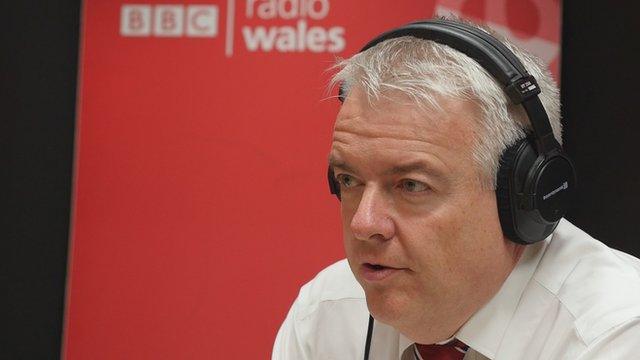
- Published9 June 2016
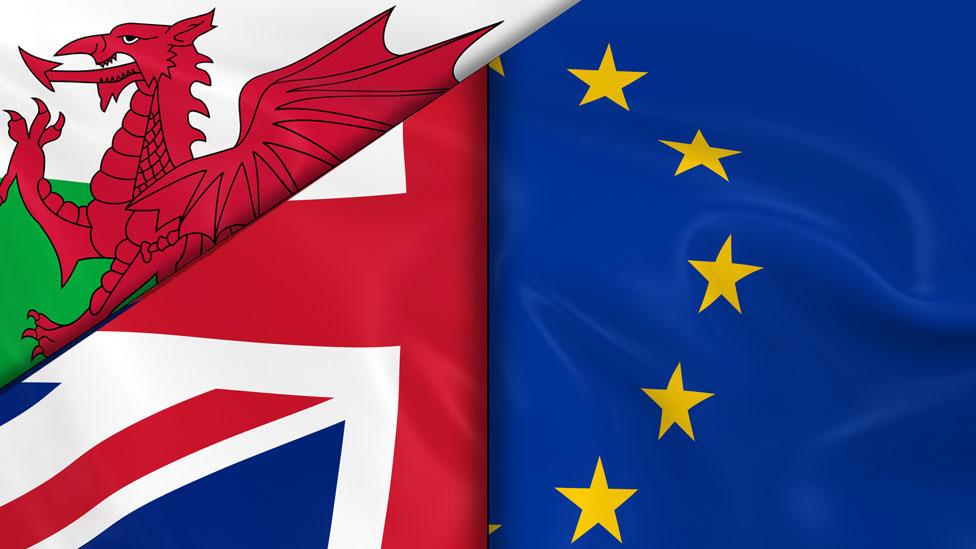
- Published7 June 2016
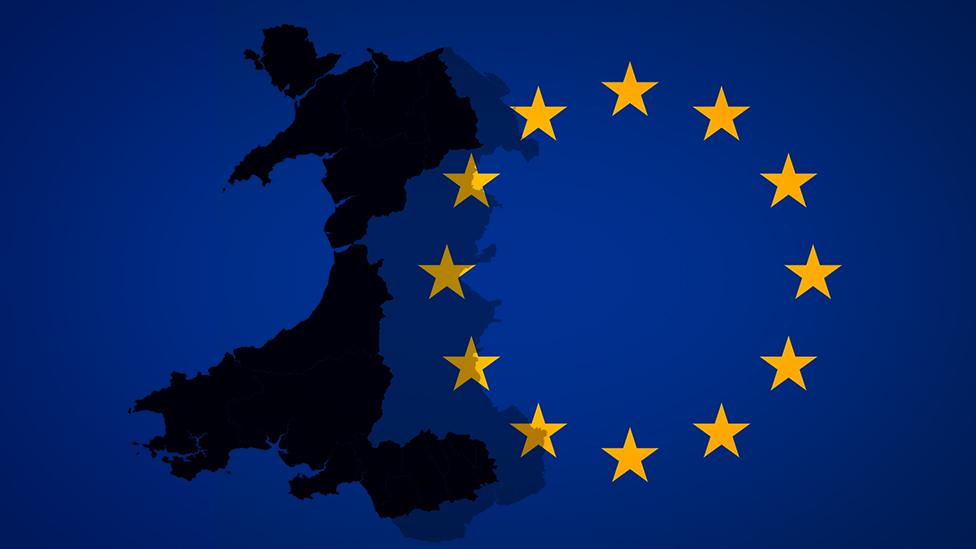
- Published6 June 2016
